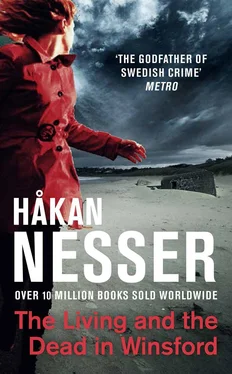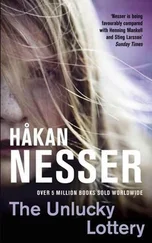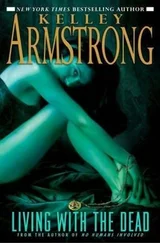Håkan Nesser - The Living and the Dead in Winsford
Здесь есть возможность читать онлайн «Håkan Nesser - The Living and the Dead in Winsford» весь текст электронной книги совершенно бесплатно (целиком полную версию без сокращений). В некоторых случаях можно слушать аудио, скачать через торрент в формате fb2 и присутствует краткое содержание. Год выпуска: 2013, Издательство: Mantle, Жанр: Криминальный детектив, на английском языке. Описание произведения, (предисловие) а так же отзывы посетителей доступны на портале библиотеки ЛибКат.
- Название:The Living and the Dead in Winsford
- Автор:
- Издательство:Mantle
- Жанр:
- Год:2013
- ISBN:нет данных
- Рейтинг книги:4 / 5. Голосов: 1
-
Избранное:Добавить в избранное
- Отзывы:
-
Ваша оценка:
- 80
- 1
- 2
- 3
- 4
- 5
The Living and the Dead in Winsford: краткое содержание, описание и аннотация
Предлагаем к чтению аннотацию, описание, краткое содержание или предисловие (зависит от того, что написал сам автор книги «The Living and the Dead in Winsford»). Если вы не нашли необходимую информацию о книге — напишите в комментариях, мы постараемся отыскать её.
The Living and the Dead in Winsford — читать онлайн бесплатно полную книгу (весь текст) целиком
Ниже представлен текст книги, разбитый по страницам. Система сохранения места последней прочитанной страницы, позволяет с удобством читать онлайн бесплатно книгу «The Living and the Dead in Winsford», без необходимости каждый раз заново искать на чём Вы остановились. Поставьте закладку, и сможете в любой момент перейти на страницу, на которой закончили чтение.
Интервал:
Закладка:
I spent a minute or so wondering whether I should write a reply to the message from G as well, but I couldn’t find a suitable way of expressing it and decided to postpone it. And I also decided to delay an answer to Bergman.
When I had finished dealing with the e-mails I started reading some news from Sweden in the web versions of the biggest newspapers, but after only a couple of minutes I realized that it didn’t interest me in the slightest. In any case there were no reports about the missing wife of a professor who had been found dead in mysterious circumstances on the Polish Baltic coast; and although I hadn’t expected to find anything of that sort, I noticed that I found it a relief. I thanked the girl behind the counter, paid what I owed and said I would certainly be coming back again.
I returned to the launderette, inserted several one-pound coins and pressed a few buttons to begin the drying process. I took Castor back to the car and let him lie under a blanket on the back seat while I wandered around the town, bought a few necessary provisions and eventually collected my clean and dry washing.
I certainly felt pleased and satisfied after having sorted out these necessary chores, as if I were any respectable and hardworking middle-aged woman you care to name. With a dog.
*
We drove a different route back over the moor. We passed through the medieval town of Dunster, passed by Timberscombe and Wheddon Cross — all the time on the same narrow, winding road that sometimes even passed through tunnels. One has to drive very carefully, and occasionally it is necessary to stop and allow oncoming traffic to pass: but I have the feeling that I’m getting used to it.
I’m getting used to everything, in fact. We arrived back at Darne Lodge at half past four as dusk was falling. The mist had persisted all day without lifting at all. Going out for walks at this time is simply unthinkable: both Castor and I could have done with some exercise, but instead the evening hours were spent ironing the washing and preparing a vegetable soup that ought to last for at least three days.
They were all useful and necessary tasks, but I noticed that my thoughts had a tendency to return to the mysterious correspondent G, and his not really specific disquiet.
12
‘We’ll go for a walk along the beach first. Castor needs some exercise.’
It was half past ten in the morning. We had just taken our leave of Professor Soblewski and his Jelena, who were still standing on the terrace, waving. We were sitting in the car on the rough gravel road that led up to the house, about to set off.
Martin was obviously hung-over, and admitted that it was a little too early for him to be sitting behind the wheel. I said I agreed. We had a long day on the roads ahead of us, and it wasn’t only our four-legged friend that needed some fresh air.
It didn’t take long for us to find our way down to the seashore. We drove along the coast for five or six kilometres, and stopped at a little lay-by in the beech woods, next to a cafe that was closed for the winter. A walking and cycle track continued over the steep hill down to a pale grey sandy beach that could just be glimpsed through the trees. We followed it, and concluded that the beach continued for ever in both directions. There were no people to be seen, it was misty and quite a strong wind was blowing — from the north-west, as far as I could judge. Without even needing to discuss the matter, we set off in an easterly direction. Castor has always liked sandy beaches, and for once he ran ahead of us with his tail held high. Martin was much more subdued, held his hands dug deep down into his trouser pockets, with his shoulders hunched. He also preferred to walk a pace or two ahead of me, and it was obvious that he wasn’t in the mood for chit-chat. I assumed that it was yesterday’s vodka that still had him in its grip: I was not unacquainted with the situation.
Perhaps also the conversation with Professor Soblewski, but I wasn’t acquainted with that.
After a while, when we had walked five hundred metres or so without having seen another soul, it dawned on Martin that he had left both his wallet and his mobile in the car. I asked if he wanted to go back, but he just shook his head in irritation.
‘You can’t blame me for that,’ I said.
‘Have I tried to?’ said Martin.
I didn’t bother to answer. I found a piece of wood instead and started playing with Castor. He is not usually interested in chasing sticks, but he was in that mood today. I threw the stick, he ran and kicked up clouds of sand, then came back with the imagined prey in his mouth.
‘Make sure he doesn’t get wet,’ shouted Martin. ‘Remember that he’ll be lying in the car in a smelly state for the rest of the day.’
I made no comment on that either. But despite the sea and the beach and the wind, my will to live started sinking to a dangerously low level. I don’t really know what I mean by that expression — a dangerously low level — but they were words that came into my head there and then, not something I fished up afterwards when I tried to analyse and understand what happened later. The mood from the previous day’s ferry crossing returned immediately, and the sleepless hours during the night before Martin came to bed — no sooner had he lain down than he started snoring, which meant that it was nearly four o’clock before I got to sleep; and as we continued along that beach, being careful to stay ten to fifteen metres from the water’s edge, where there was a wide strip of tightly packed sand that was pleasantly easy to walk on, it dawned on me that despite everything, it had nothing to do with angst.
More to do with futility. A feeling without feelings, a nonchalance that surprised me because I couldn’t remember ever having experienced it before. Even if it might have been what Gudrun Ewerts was trying to track down during our conversations. Or is it typical of futility that one doesn’t experience it? It sounds as if that might be the case. I wondered if in fact it might have been some quite different person walking along this beach with her husband and her dog — or that some cynical supernatural power was amusing itself by substituting a different brain and a different memory bank in my poor head, and that was why I was unable to get my bearings. I had gone astray in my inner landscape, and that was due quite simply to the fact that it had been changed. Or erased. It seemed to me that a person of my age ought not to be exposed to emotions and moods that can’t be weighed up and identified: but that was exactly what seemed to be happening. I was a newly born fifty-five-year-old baby.
I am trying to put into words my state of mind that day, and I’m doing that almost three weeks later. It might seem that by doing so I am trying to express a need to understand and justify what happened, but I’m afraid that might also be false. I’m writing in order to avoid going mad — the gradual eroding madness of solitude — and in order to outlive my dog. Nothing else.
We continued walking. A kilometre, maybe one-and-a-half. Without a word. Without a trace of any other people, it was quite remarkable. Just me, Martin and Castor, at reassuring distances away from one another. Each one of us evidently in a world of our own. Three living creatures on a beach, in late October. Castor had stopped chasing after sticks, but was in the lead. It struck me that there was nothing I craved. I wasn’t hungry, wasn’t thirsty.
And then we came to the bunker.
It was half-buried in the sand quite some way from the water’s edge, just below the steep slope up to the edge of the beech woods.
Martin stopped.
‘Just look at that, for Christ’s sake!’
It was the first time either of us had uttered a word since he instructed me to keep the dog under control. I looked at the bunker — there was nothing else he could have been referring to — and asked what he meant.
Читать дальшеИнтервал:
Закладка:
Похожие книги на «The Living and the Dead in Winsford»
Представляем Вашему вниманию похожие книги на «The Living and the Dead in Winsford» списком для выбора. Мы отобрали схожую по названию и смыслу литературу в надежде предоставить читателям больше вариантов отыскать новые, интересные, ещё непрочитанные произведения.
Обсуждение, отзывы о книге «The Living and the Dead in Winsford» и просто собственные мнения читателей. Оставьте ваши комментарии, напишите, что Вы думаете о произведении, его смысле или главных героях. Укажите что конкретно понравилось, а что нет, и почему Вы так считаете.












